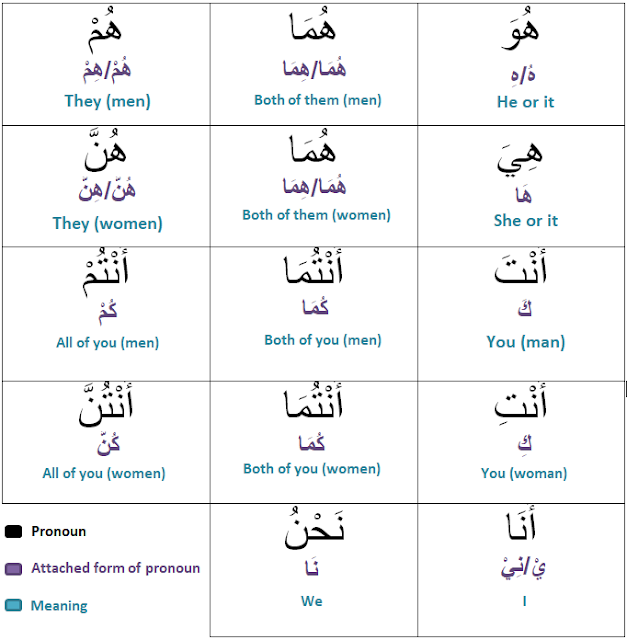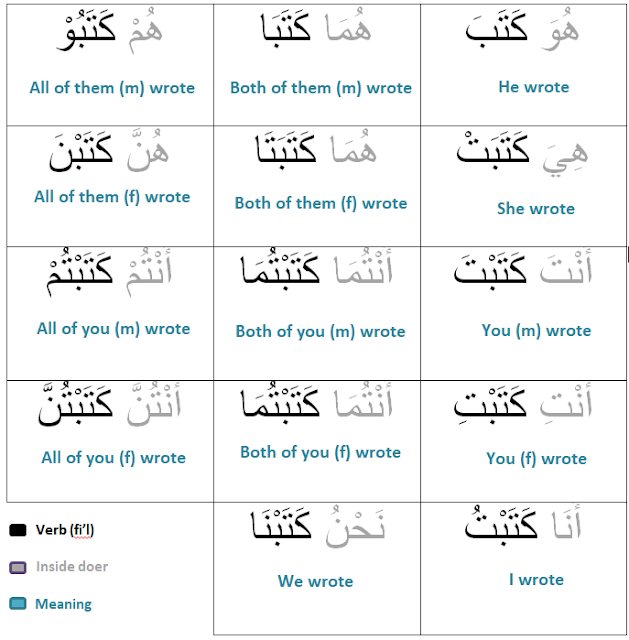Hadhiya (Blog post 22 (i))
We often
tend to think that it’s a difficult process to make our children familiar with
the Quran and make them love the Book with all their hearts. But I can tell you
that it is not true.
I had
this beautiful experience with a 4 year old kid and the book that I have posted
below (Goodnight stories from the Quran). So this kid came to me with the book
and told me to tell her a story. Though she knew how to read, she needed to be
explained what happens in the story. For some reason, the story of Musa (AS) is
her favorite. So I told her the story as it was in this book. (Though I said
Musa (AS) for Moses and Fir’aun for Pharoah because that’s how those names
appear in the Quran).
And that
was it! After the story, all I had to do was tell her that this story is in
Surah Ta Ha. And Surah Ta Ha is one the surahs that she listens to most
frequently because she likes the rhythm of it. As soon as I said it, she goes,
“Let’s listen to Surah Ta Ha to see if it tells the story.” I said yes and she
played it from my phone and was listening to it intently unlike the other
times. The moment she heard the ayah, وَهَلْ أَتَاكَ حَدِيثُ مُوسَىٰ,
she exclaimed “MUSA!!!” with sheer excitement! The same thing happened the
moment she heard “Fir’aun”. Then she started asking me about what the ayahs
were saying.
This was not just a one-time
thing. After that day, every time she heard ‘Musa’ or ‘Fir’aun’ from the Quran,
she would show the same excitement. Once she got hands on one of my Arabic notebooks.
As we were flipping through the pages, I happened to see an ayah from Surah Ta
Ha which also had the name ‘Musa.’ When I showed it to her, she refused to let
go off that book saying that it was her favourite book. Subhaanallah! The joy
that fills the hearts when they get to know even a little bit from the Quran!
I find this as a reason to
celebrate. Because now, the Quran will not be just some “Buzz” in the
background for her if she hears it from anywhere. It will be something that is
alive and meaningful for her. It would be something that excites her and fills
her heart with happiness even if it’s just one surah for now. At least she
wouldn’t be clueless about what the ayahs are saying. She would at the very
least have the sense that these ayahs are saying something valuable and hence
she needs to think about them In Sha Allah. (Baarakallah Lahaa) And that’s the
relationship we are supposed to have with those ayahs.
May Allah make us of those
whose hearts are filled with joy when they hear His Words. Ameen!
*******************************************************************
އަހަރުމެންގެ ކުދިންނަށް ޤުރުއާން އުނގަންނައިދީ
އެފޮތަށްޓަކައި އެކުދިންގެ ހިތުގައި ލޯތްބެއް ޖެއްސުމަކީ އުދަގޫކަމެއްހެން
އަހަރުމެންނަށް ހީވެދާނެއެވެ. އެހެނަސް އެއީ ކުށްހީއެއްކަމަށް އަޅުގަނޑު ބުނަން
ބޭނުމެވެ.
4 އަހަރުގެ ކުއްޖަކާއި ތިރީގައި އެވާ ފޮތާއި (ގުޑްނައިޓް
ސްޓޯރީސް ފްރޮމް ދަ ޤުރުއާން) އެކީ އަޅުގަނޑަށް ކުރެވުނު ތަޖުރިބާއެއްގެ ވާހަކަ
ޙިއްސާކޮށްލާނަމެވެ. އެއްދުވަހު އެކުއްޖާ ވާހަކައެއް ކިޔައިދިނުމަށް އެދި އެ ފޮތް
ހިފައިގެން އަޅުގަނޑުގެ ގާތަށްއައެވެ. ފޮތް ކިޔަން އެކުއްޖާއަށް އެނގުނަސް އެއިން
ވާއެއްޗެއް ދޭހަކުރަން އެކުއްޖާ އެހީ ބޭނުންވެއެވެ. ކޮންމެވެސް ސަބަބަކާހުރެ
އެކުއްޖާ އެންމެ ކިޔާ ހިތްވާ ވާހަކައަކީ މޫސާ (ޢަލައިހިއްސަލާމް) ގެ ވާހަކައެވެ.
އެހެންކަމުން އަޅުގަނޑު އެ ފޮތުގައި އޮތް ގޮތަށް އެކުއްޖާއަށް އެ ވާހަކަ
ކިޔައިދިނީމެވެ.
ވާހަކަ ކިޔުމަށްފަހު އަޅުގަނޑު ބުނަން ޖެހުނުހާ ވެސް އެއްޗަކީ،
ދެންމެ ކިޔައިދެވުނު ވާހަކަ ސޫރަތް ޠާހާގައި ވާ ކަމެވެ. ޠާހާ ސޫރަތުގެ ރާގު ހުންނަ
ގޮތުން އެއީ އެ ކުއްޖާ ވަރަށް އަޑުއަހާ ހިތްވާ ސޫރަތެކެވެ. އަޅުގަނޑު އެހެން
ބުނުމާއެކު އެކުއްޖާ ބުންޏެވެ. މި ވާހަކަ އެ ސޫރަތުގައި އޮތްތޯ ބަލަން ސޫރަތް ޠާހާ
އަޑުއަހަން ހިނގާށެވެ. އަޅުގަނޑު އާނއެކޭ ބުނުމުން އަޅުގަނޑުގެ ފޯނުން އެކުއްޖާ އެ
ސޫރަތް ޕްލޭ ކުރިއެވެ. އަދި އެހެން ފަހަރުތަކާއި ޚިލާފަށް ނުހަނު ކަނުލައިގެން
އަޑު އަހަން އިނެވެ. وَهَلْ
أَتَاكَ حَدِيثُ
مُوسَىٰ މި އާޔަތާއި ހަމައަށް ދެވުނުތަނާހެން
ނުހަނު ޖޯޝާއެކީ އެކުއްޖާ "މޫސާ!" އޭ ކިޔާލިއިރު އެ މޫނުމަތިން
އުޖާލާކަމެއް ފެންނަމުން ދިޔައެވެ. 'ފިރްޢައުން' ގެ ނަން އިވިގެން ދިޔަ ވަގުތުވެސް
ވެގެން ދިޔައީ އެކަހަލަ ގޮތެކެވެ. އެއަށްފަހު އެ އާޔަތްތަކުން އެ ބުނެވެނީ ކީކޭ
ކަމާމެދު އެކުއްޖާ އަޅުގަނޑާއި ސުވާލުކުރަން ފެށިއެވެ.
މިއީ އެންމެ ދުވަހެއްގެ ކަމަކަށް ނުވިއެވެ. އޭގެ ފަހުން
ޤުރުއާން އަޑުއިވޭ ކޮންމެ ފަހަރަކު 'މޫސާ' ނޫނީ 'ފިރްޢައުން' އޭ ކިޔާ އަޑު
އިވުމުން އެކުއްޖާގެ މޫނުމަތިން އުޖާލާކަމެއް ފެނިގެންދެއެވެ. އެއްދުވަހު
އަޅުގަނޑުގެ ޢަރަބި ނޯޓް ފޮތްތަކެއްގެ ތެރެއިން ފޮތެއް އެކުއްޖާގެ އަތުގައި
ޖެހުނެވެ. ފޮތުގެ ޞަފްޙާތައް ހިއްލަމުން ދަނިކޮށް މޫސާ (ޢަލައިހިއްސަލާމް) ގެ ނަން
އޮތް ޠާހާ ސޫރަތުގެ އާޔަތެއް އަޅުގަނޑަށް ފެނުނެވެ. އެ އާޔަތް ދެއްކުމުން އެކުއްޖާ
އެ ފޮތުން ވެސް ދޫކުރަން އިންކާރު ކުރިއެވެ. މިއީ ތިމަންނައަށް އެންމެ ކަމުދާ
ފޮތްކަމަށް ބުނަމުންނެވެ. ސުބްޙާނަ ﷲ! ޤުރުއާނުގެ ކިތަންމެ ކުޑަ މިންވަރެއް
އެނގުމުން ވެސް ހިތްތައް އުފާވެރިކަމުން ފުރިގެންދާ ގޮތަކީ އެއީއެވެ.
މިއީ އުފާ ފާޅުކުރަންޖެހޭ ސަބަބެއް ކަމުގައި އަޅުގަނޑު
ދެކެމެވެ. އެހެނީ ކުރިއަށް ހުރި ދުވަސްތަކުގެ ޤުރުއާނުގެ އަޑަކީ ހަމައެކަނި
ފަހަތުން އިވޭ 'ޒޫން' އަޑަކަށް އެކުއްޖާއަށް ނުވާނެއެވެ. އެ އާޔަތްތަކަކީ
ދިރުންހުރި އަދި މާނަހުރި އާޔަތްތަކެއްކަން އެކުއްޖާއަށް އިޙްސާސްކުރެވޭނެއެވެ. އެ
އާޔަތްތަކަކީ އެކުއްޖާގެ ހިތް އުފާވެރިކަމާއި ޖޯޝުން ފުރުވައިދޭ
ސަބަބަކަށްވާނެއެވެ. މި ވަގުތު އެހެންވަނީ މަދު ސޫރަތްތަކުން ކަމަށްވިޔަސް މެއެވެ.
އެއްވެސް އާޔަތެއްގެ އެއްވެސް މާނައެއް ނޭނގޭ ކުއްޖަކަށް އެކުއްޖާ ނުވާނެއެވެ.
އަދި އެ އާޔަތްތަކަކީ އަގުހުރި އެއްޗެއްގެ ގޮތުގައި އެކުއްޖާއަށް ސިފަކުރެވި އެ
އާޔަތްތަކާއިމެދު ވިސްނަން ޖެހޭނެކަން އެކުއްޖާއަށް އެނގުންވާނެއެވެ. އިން ޝާ ﷲ!
(ބާރަކަ ﷲ ލަހާ) އަހަރުމެން ވެސް އެ އާޔަތްތަކާއި ބާއްވަން ޖެހެނީ އެފަދަ
ގުޅުމެކެވެ.
މާތް ﷲ އަޅަމެންނަކީ އެކަލާނގެ ބަސްފުޅު އިވިފައި
އުފާވެރިކަމުން ހިތްތައް ފުރިގެންދާ ބަޔަކު ކަމުގައި ލައްވާށި! އާމީން!



Comments
Post a Comment